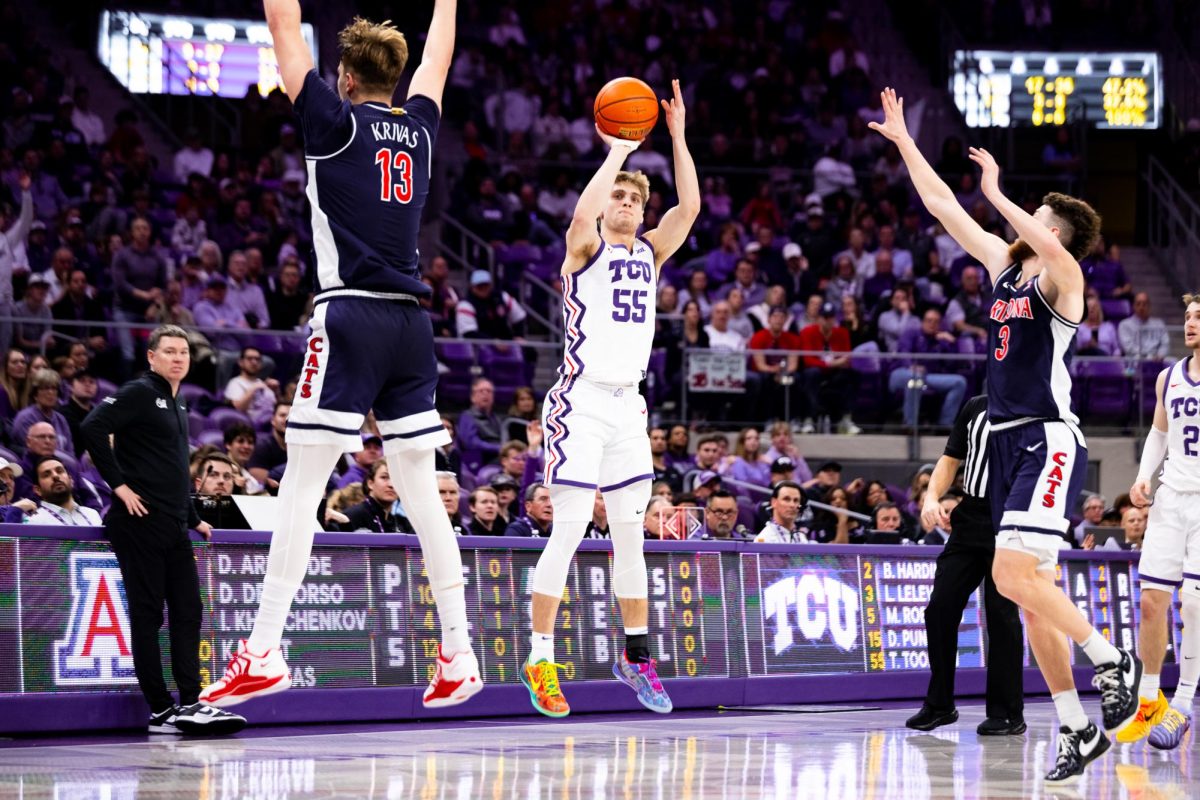Nonprofit brings gardens to local schools
Published Dec 2, 2011
Second-year science education master’s student Kristen Payne, an intern for REAL School Gardens, is bringing the organization to the heart of campus. Payne was a biology student during her undergraduate career at the university and has always been interested in outdoor education, she said. REAL School Gardens, a nonprofit organization that creates “learning gardens” with elementary schools, has collaborated with school districts in the Dallas-Fort Worth metroplex, including Fort Worth, Dallas and Grand Prairie. “When some people think of education, they automatically think of going into a classroom, which is just as equally important, but we live in such an incredible metroplex that has this opportunity [to work with REAL School Gardens],” Payne said. In the past, the organization has selected schools from around the metroplex in which it could integrate the program, Payne said. Now, schools can apply to be a part of the program. REAL School Gardens fundraises and creates gardens at the elementary schools, according to the organization’s website. The gardens are used as an outdoor classroom for educational purposes. But the organization does not stop once the garden is integrated into the school. It offers several forms of professional development for the school’s educators. “In some circumstances, these children live in apartment complexes, so few of them have backyards,” Payne said. “Their outdoor experience is solely at the school.” When REAL School Gardens gets a new partner school and implements the garden into the campus, it then conducts professional development for the staff. The organization teaches the school’s staff different components, such as planting and weeding, to keep the garden alive. The organization will then teach the staff members how to use the garden as an educational tool in a classroom setting. After the professional development, REAL School Gardens has a partnership with the school that offers integration visits. Two educators from the organization go to each school three times a year. Those educators take out one class per grade level and teach the class directly in the garden, Payne said. The teachers have a chance to learn how to incorporate the garden into any lesson plan. Payne said some people might assume the garden involves subjects such as science and math, but the organization also gives teachers ideas for how to use the garden in different educational realms, such as literature, music and art. REAL School Gardens has compiled different lessons over time that demonstrate how to use the garden in different subjects, according to the organization’s website. It also provides one-on-one attention on how to use the garden. Although partner schools have gardens that they want to use, they may not know how to use them in a classroom setting, Payne said. REAL School Gardens would like to get TCU students to volunteer in garden placements, Payne said. “We have this huge education program that is blossoming,” she said. “REAL School Gardens is growing in the metroplex, so it would be neat to be able to integrate the TCU students and give them the opportunity to learn in the outdoor setting as well.” Payne said she recently got the idea to hold a holiday donation drive and brought it to campus. When the organization puts the gardens in the schools, it is just the garden setting, which means certain tools for the children are in demand, she said. REAL School Gardens has tools such as thermometers and hand lenses that they own and take with them for lessons. Payne said the educators at some schools do not typically have those educational garden tools. For the holiday donation drive, the organization has created a link to its Amazon “wish list” where anyone can select an item that would be sent directly to REAL School Gardens to benefit its partner schools. Payne said the nonprofit organization was an excellent resource for people going into the educational field who want to seek out professional development. Volunteers are always welcome, she said. “We are not trying to get anything out of it other than helping the community and helping the kids,” Payne said. To participate in the holiday donation drive: 1. Go to the REAL School Gardens website 2. Scroll to the bottom of the page and click the amazon.com square, right below the “What is Real” text box 3. Pull down the “Wish List” tab on the top right of the Amazon page and select “Wish List” 4. Enter “Real School Gardens” in the “Find Someone’s List” box 5. The items on the wish list should appear. Shop away and help public schools in the area! If you have any problems, please email Kristen Payne at [email protected].


